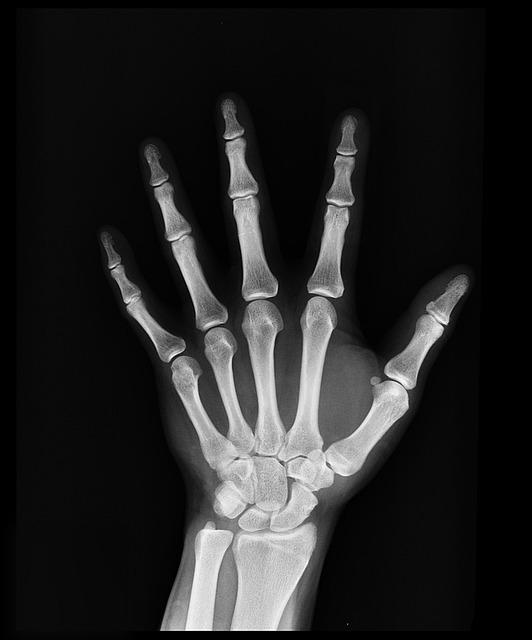Dual Diagnosis Centers in Rivervale, NJ, specialize in treating co-occurring substance use disorders (SUD) and mental health issues like depression or schizophrenia. These centers offer comprehensive inpatient rehab with 24/7 monitoring, individual therapy, group support, medication management, and evidence-based practices to address unique patient needs. The immersive environment facilitates rapid stabilization, promotes long-term recovery, and improves overall mental well-being for individuals struggling with Dual Diagnosis in Rivervale, New Jersey.
Inpatient rehab for co-occurring disorders offers specialized care for individuals struggling with both mental health and substance use issues, known as dual diagnosis. This comprehensive treatment approach addresses the complex nature of these conditions. In this guide, we explore the role of inpatient rehab at leading Dual Diagnosis Centers Rivervale, New Jersey, providing insights into understanding co-occurring disorders, treatment strategies, what to expect during recovery, and the proven benefits of specialized inpatient care.
- Understanding Co-Occurring Disorders: A Comprehensive Overview
- The Role of Inpatient Rehab in Treating Dual Diagnosis
- What to Expect at a Dual Diagnosis Center in Rivervale, NJ
- Benefits and Recovery Outcomes of Inpatient Care for Co-occurring Disorders
Understanding Co-Occurring Disorders: A Comprehensive Overview

Co-occurring disorders, often referred to as Dual Diagnosis, represent a complex interplay between addiction and mental health conditions. This is when an individual struggles with both a substance use disorder (SUD) and a concurrent mental health issue, such as depression, anxiety, bipolar disorder, or schizophrenia. Recognizing this dual struggle is crucial because untreated co-occurring disorders can lead to poor mental health outcomes, increased risk of addiction relapses, and overall diminished quality of life.
Dual Diagnosis Centers in Rivervale, New Jersey, are specialized facilities designed to address these complex needs. They offer comprehensive treatment plans that integrate both addiction recovery and mental health care, ensuring patients receive the individualized attention required for successful dual diagnosis treatment outcomes. Such centers typically provide a range of therapeutic interventions, including individual counseling, group therapy sessions, medication management, and long-term care tailored to each patient’s unique circumstances, ultimately fostering better recovery and improved overall well-being.
The Role of Inpatient Rehab in Treating Dual Diagnosis

Inpatient rehab plays a pivotal role in addressing Dual Diagnosis Centers Rivervale New Jersey, where individuals struggle with both addiction and mental health disorders simultaneously. This comprehensive approach to treatment is essential as it provides an intensive and structured environment tailored to meet the unique needs of dual-diagnosis patients. By offering 24/7 monitoring and specialized care, Rivervale NH dual diagnosis facilities ensure that both conditions receive adequate attention.
The integration of addiction mental health services New Jersey focuses on identifying and managing underlying mental health issues, often co-occurring with substance use disorders. This holistic treatment model facilitates healing by addressing the root causes, preventing relapse, and fostering long-term recovery. Patients at these centers benefit from individualized therapy sessions, group support, and evidence-based practices designed to tackle dual diagnoses effectively.
What to Expect at a Dual Diagnosis Center in Rivervale, NJ

When seeking help for co-occurring disorders in Rivervale, New Jersey, visiting a Dual Diagnosis Center offers a comprehensive and supportive environment. These centers specialize in treating individuals with both mental health and substance use disorders simultaneously, addressing the complex nature of dual diagnosis. Patients can expect a warm welcome and immediate assessment to understand their unique needs.
The local resources for dual diagnosis treatment in Rivervale prioritize a holistic approach, focusing on physical, emotional, and psychological well-being. This involves individual therapy sessions, group support meetings, and various therapeutic activities designed to promote healing and successful dual diagnosis treatment outcomes. The staff at these centers are equipped to handle a range of conditions, ensuring personalized care tailored to each resident’s journey towards recovery.
Benefits and Recovery Outcomes of Inpatient Care for Co-occurring Disorders

Inpatient rehab centers, like Dual Diagnosis Centers Rivervale New Jersey, offer a comprehensive and intensive approach to treating co-occurring disorders—a significant advantage over outpatient programs. The immersive nature of inpatient care allows for immediate and constant access to medical staff, therapists, and peers, fostering an environment conducive to healing. This structured setting facilitates the coordination of treatments for both addictions and mental health conditions simultaneously, addressing the complex needs of individuals struggling with dual diagnoses.
One of the key benefits is rapid stabilization, ensuring patients receive the best care for co-occurring addictions and mental illness. Inpatient programs provide a supportive network, helping to build resilience against triggers and cravings. This intensive support network in Rivervale helps residents develop coping strategies, acquire life skills, and gain insights into their conditions. As a result, many individuals experience improved recovery outcomes, including higher rates of long-term sobriety and better overall mental well-being, setting them on the path to sustainable recovery.
Inpatient rehab at reputable Dual Diagnosis Centers in Rivervale, New Jersey, offers a comprehensive approach to treating co-occurring disorders. By combining specialized therapy, medical care, and supportive surroundings, these centers provide an ideal environment for individuals struggling with dual diagnoses to heal and recover. The benefits of inpatient care include intensive treatment tailored to individual needs, access to expert professionals, and a structured program that facilitates long-term recovery. With the right support, those affected by co-occurring disorders can overcome their challenges and embrace a brighter future free from addiction and mental health struggles.

